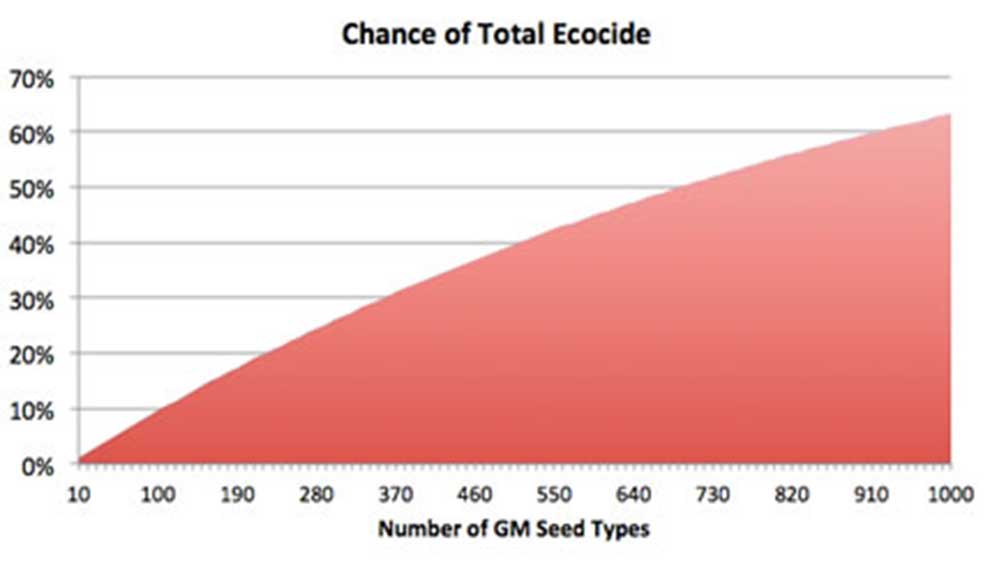
Nassim Nicholas Taleb is a well-known statistician, professor at NYU, author and scholar who is also famous for his prediction of the financial crisis in 2008. At that point he made some calculated financial resolutions thanks to which he became quite wealthy when his predictions turned out right.
Present-day, he shared his views on the impact of GMOs on our planet. His survey on the use of genetically modified organisms presents them as a potential cause for the destruction of our world. He states that these foods threaten not only the people, but there is also risk for the health of the whole biodiversity in the world.
Taleb reminds that everything in nature is in correlation. Due to that some risks could appear insignificant when they are separately analyzed. Even small genetic mistakes can be the reason for some serious and irreparable environmental wounds. He states that defenders of the GMOs are misled by their lack of knowledge in fundamental statistics. The public as well as most of the researchers fail to understand the mathematical and statistical principles of risk. In his article on Taleb’s analysis, Brian Soffel shows a thoughtful example: if we suggest that each genetically modified seed bears even the smallest potential danger, in the tangled interdependent net of nature, this seed may be the reason for a disastrous turn of events for the ecosystem. Even if there is just a 0.1% risk, the chance appears insignificant by itself, but with every other genetically modified seed it starts growing progressively.
Some may say that there is risk in everything and that we can’t make progress without any risk. The answer of Taleb is that if there is a risk of extinction of all the life on our planet, we cannot close our eyes for that in the name of progress. Moreover, GMOs are not the only way to solve the risk of famine. For example, bottom-up techniques are a good alternative.
Countries all around the world have already banned GMOs as they are holding serious risks for the well being of the humans and the environment as a whole. But the situation in the US is different: statesmen say that the people don’t understand the state of affairs regarding GMO and that’s why they shouldn’t be banned. This could be explained by the absence of researches concerning GMOs impact on human health in the USA. That’s because the GM companies, like Monsanto, hide the results from the public.
Despite that, it is widely known that GM foods hold great risks that can be quite harmful for our health and for the ecosystems. There are various researches that show the negative effects of GMOs.
It was discovered that when pigs are fed GM foods, they could grow heavier uterus and suffer serious stomach inflammation.
Another study revealed that glyphosate (a herbicide that Monsanto uses) increases the fungal infections and causes lower crop yields on GM plants. Moreover, it was found that there are higher amounts of glyphosate in GM soy.
Glyphosate may cause health problems to humans and animals. It has a negative impact on the human gut bacteria. It also causes morphological changes in frogs.


